Sally Hayes
"I started out thinking CHaPS was just about weighing babies, and then I started doing pracs with this amazing nurse. She had so much knowledge and was supportive of the families. It made me such a better parent."
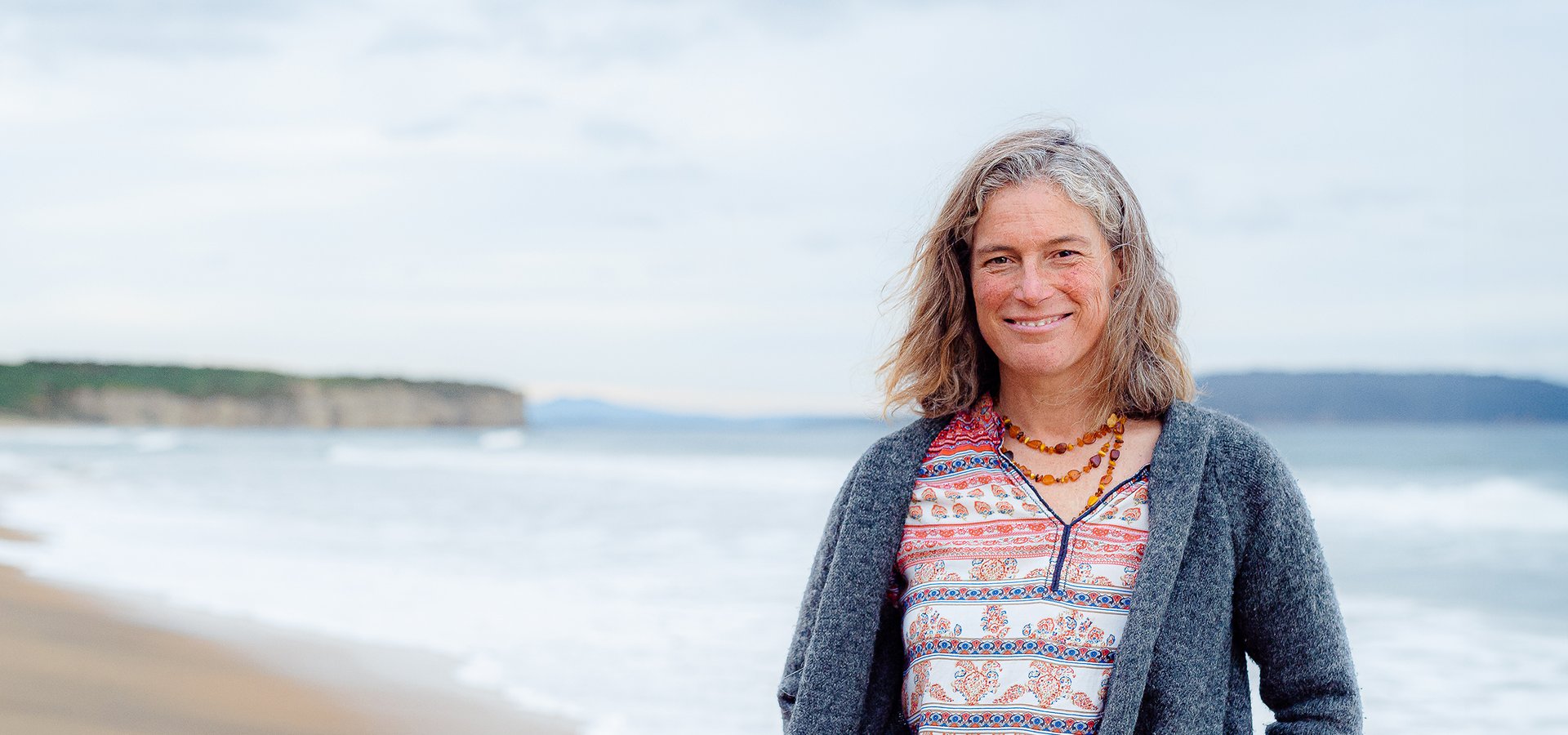
"No parent is perfect, and it takes a long time to feel confident. But every time you feel more comfortable, more in control, less scared — that’s a victory. You can make such a difference helping just one person."
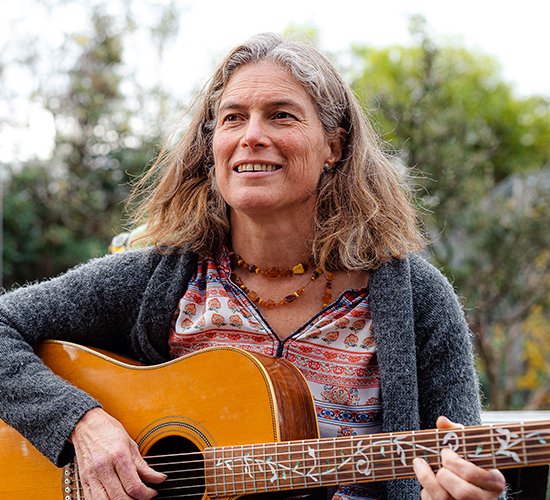
Even though she’s been surfing for decades, Sally Hayes still remembers the thrill of standing up for the first time.
She was working hospitality in Melbourne when she started going to a co-worker’s caravan at Torquay: they’d finish their Friday night shift and head to the coast for the weekend. She bought a 15-dollar board from the local tip shop. “It took me quite a long time to learn, because it was just this tiny little fibreglass thing,” Sally recalls. “But when you finally learn to stand up, it’s the most exhilarating sense of achievement. It only lasts for a few seconds, but you’re fully immersed in the ocean.” For Sally, it wasn’t just about catching bigger waves. It was about friendship. “We’d spend hours chatting in the water. There’s nothing else: no one yelling at you, no one telling you off. You’re just out there, bobbing, surrounded by seabirds and the ocean.”
Sally’s love for the outdoors began when she was in school. She was an active kid, waking up at 5am to train swimming four mornings a week, then playing hockey after school. An enthusiastic group of teachers organised outdoor adventures, taking kids bushwalking, climbing, caving, and skiing. They were caring and encouraging – and they taught the students how to work hard towards a team goal. “I remember one particular ski touring trip,” Sally says. “We were going up to a peak in the Victorian High Plains, and it was a howling blizzard. We were all thinking we should give up, but the teacher kept us going. We got to the top and back down, and we were elated. I remember thinking, ‘This has got to be my life. This is what I want to do.’”
Being out in the hills brought Sally a sense of freedom she had been craving. Sally spent her earliest years on a farm in country Victoria, with her parents and a loving nanny, whose nurturing presence she remembers even now. She was five when her parents divorced, and, suddenly, her mum became single parent to four daughters. They moved to Melbourne, and life was often stressful. Her mum’s toughness strongly influenced Sally’s own determination to pursue what mattered to her. “I worked so hard – babysitting, framing pictures – to go on every outdoor trip I could possibly manage. Most of the kids, their parents just gave them the money. We had to save up our own, which made me more driven, I think.”
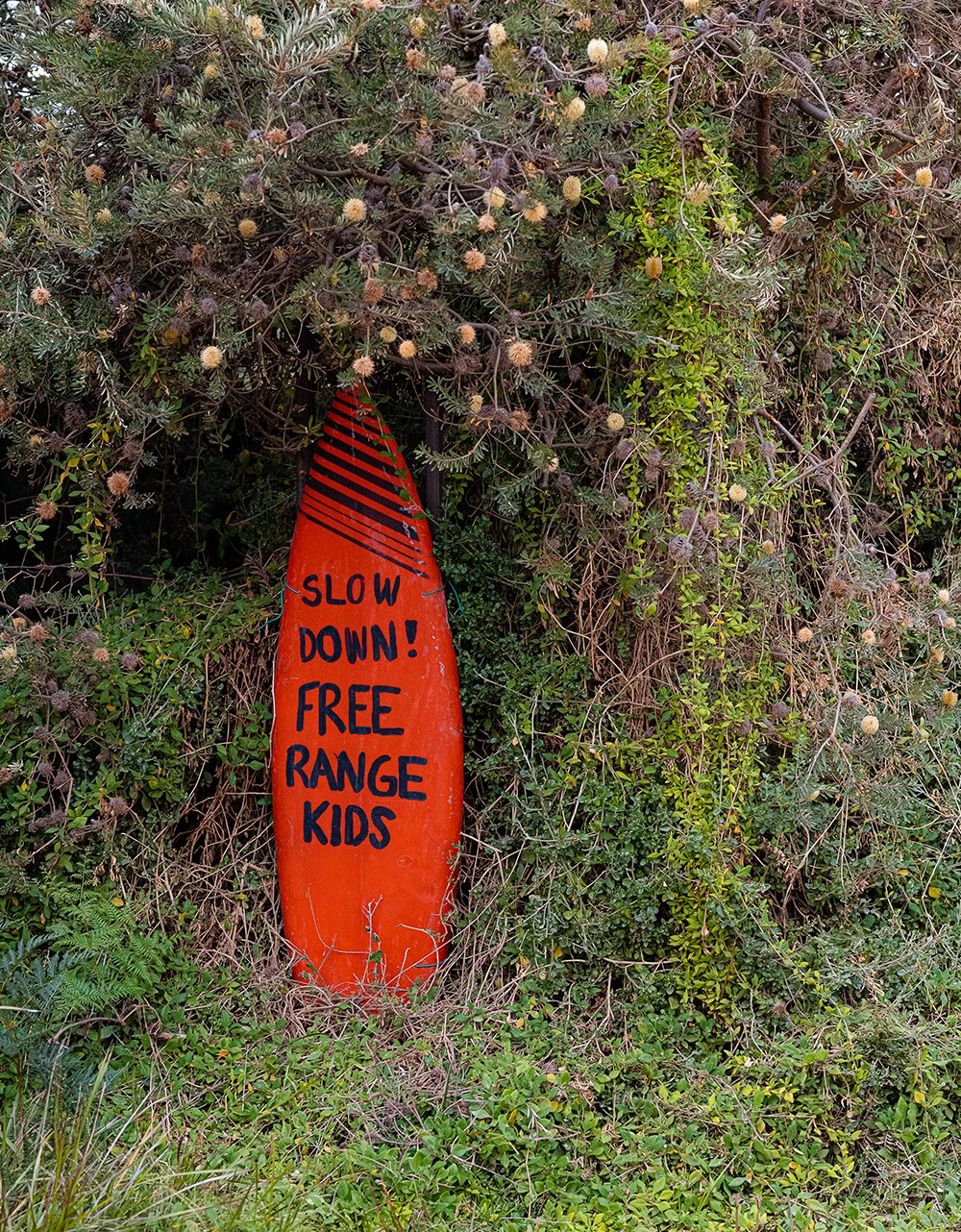
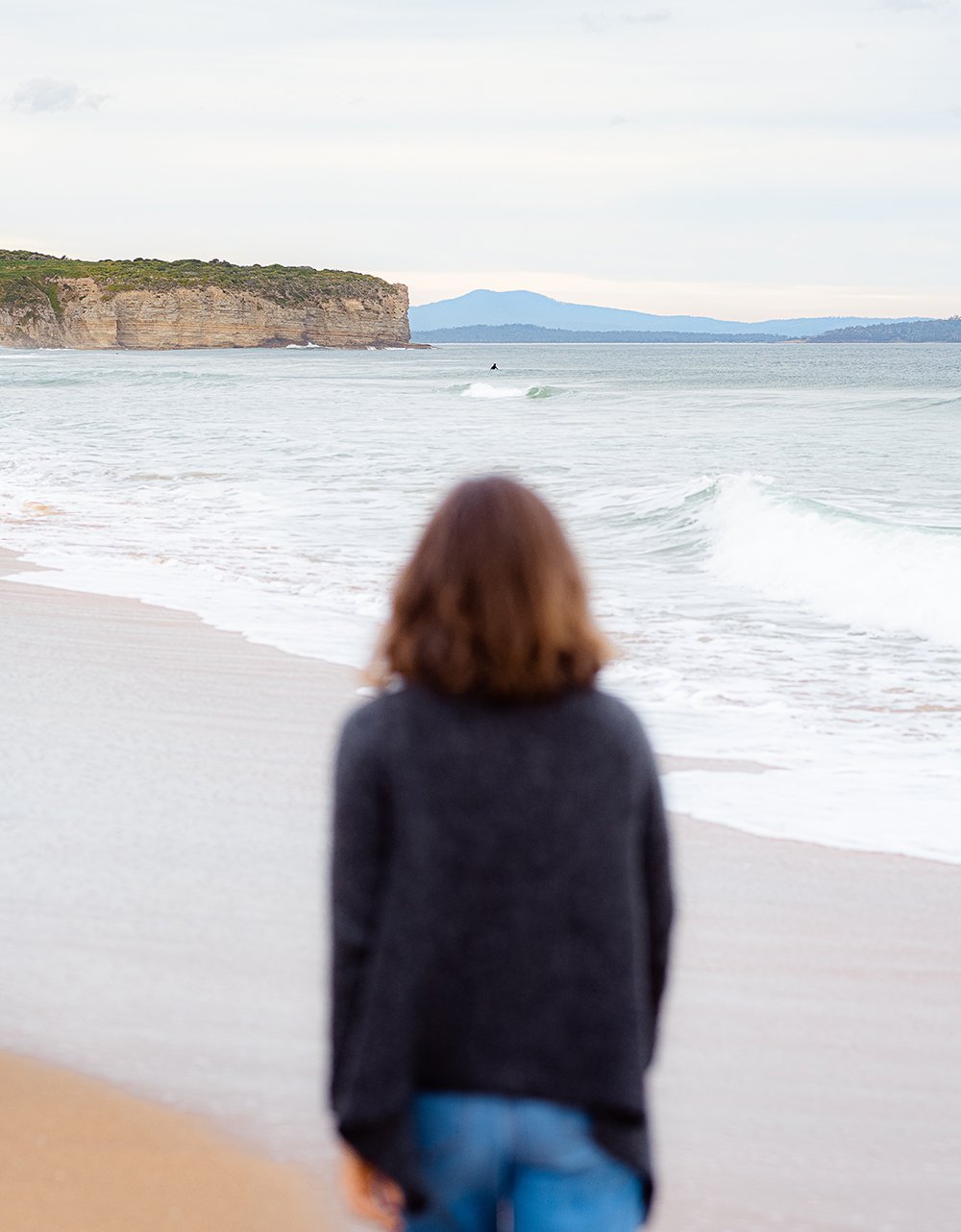
They were like an angel. They chatted with me about being a parent: feeding, sleep, settling. They just sat with me, like a mum would do. If that child health nurse hadn’t said, ‘You need to get some help,’ I’m not sure how I would have gone on.
The more her world expanded, the more Sally yearned to experience life beyond Melbourne. She deeply wanted to go to uni. “I wanted to do something where I could travel. I thought, ‘What can I do to get out?’ So, I decided to do nursing, and it was great.” She left home at 17 and supported herself through uni, heading out on adventures whenever she could. “Every time I didn’t have an assignment, I was out surfing, skiing, bushwalking.” Sally travelled to Europe and Nepal and started working in Emergency at the Alfred Hospital in Melbourne. Working at the Alfred was educational and intense, so Sally knew she wouldn’t be there forever. Then, a chance meeting while she was out ski touring set her on a new path.
“My whole life has been about finding people who want to do things,” Sally says. “I was on a ski tour, saying how I was tired of the craziness of Emergency. And this couple from Tasmania was like, ‘Why don’t you come down and work as a bushwalking guide?’” Sally packed up her life and set out on a rite of passage for many outdoorsy young folks in Tasmania: guiding the Overland Track. “I remember thinking, ‘I can’t believe I’m being paid to walk and cook for people,’” she recalls. She began a role with TasTAFE, working with her close friend, Dave Gardner, to start up the Certificate IV in Adventure Guiding. Sensing she would return to nursing one day, she studied midwifery in the background.
Sally’s return to nursing happened sooner than she imagined. Dave died in a mountaineering accident just days before the birth of Sally’s first son. They had worked together for years, and Sally was grieving at the same time as bonding with her new baby. With her family interstate, Sally and her husband relied on friends for support – but none of them had their own experience raising children. She struggled with breastfeeding. “My nipples were raw and bleeding. I’m such a doer, I just kept on with it. But when I saw my child health nurse, I cried for the entire appointment.” The nurse referred her to a Lactation Consultant, and the Parenting Centre, a part of the Child Health and Parenting service which offers an additional level of support to parents “They were like an angel,” Sally recalls. “They chatted with me about being a parent: feeding, sleep, settling. They just sat with me, like a mum would do. If that child health nurse hadn’t said, ‘You need to get some help,’ I’m not sure how I would have gone on.”
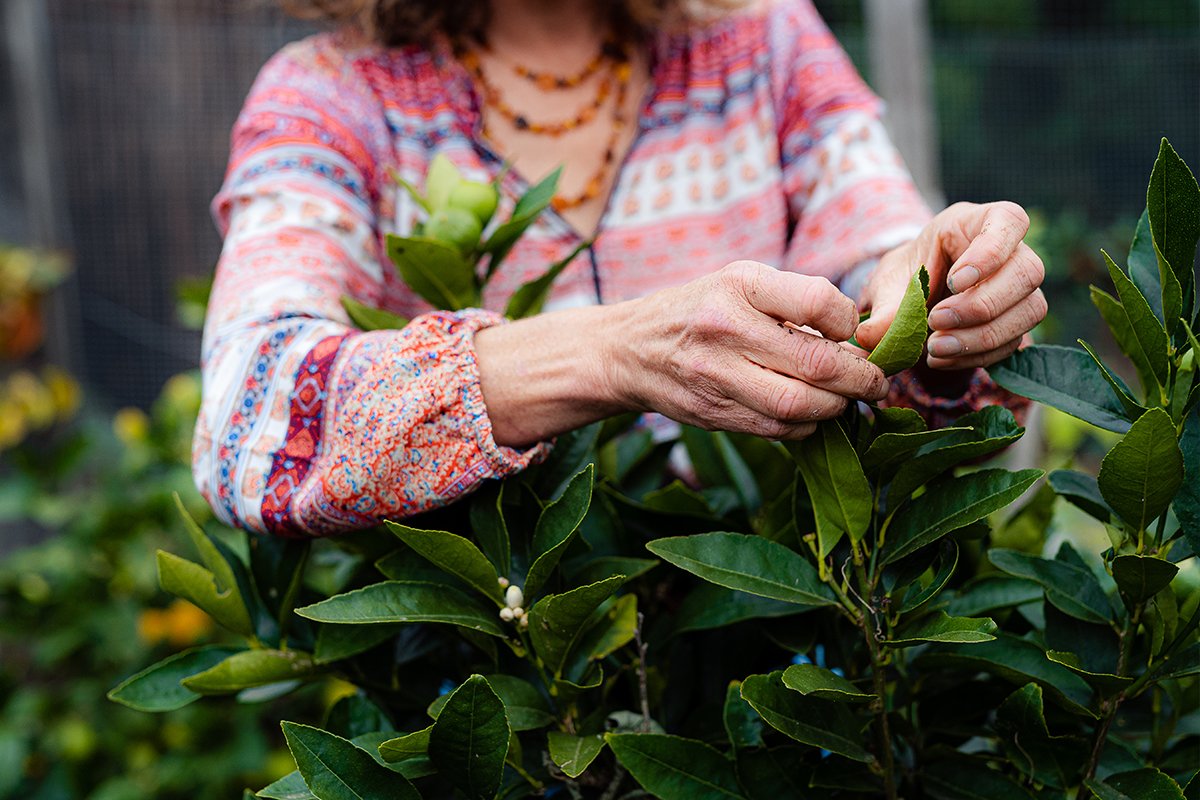
Sally stopped guiding and spent 10 years at the Royal Hobart Hospital. Her own experience as a new parent inspired her to become a Lactation Consultant. But something wasn’t quite right. She was constantly sick with severe asthma symptoms. She tried everything to get better, but nothing worked. “I loved being the Lactation Consultant,” she said. “It was my dream job, and I didn’t want to leave, but I had to.” Then, she had an idea: she would become a child health nurse.
From growing up with a single mum to overcoming feelings of isolation as a new parent, Sally brings deep empathy and understanding to her nursing practice. Her face brightens as she describes the supports Tasmania’s Child Health and Parenting Service(CHaPS) provide for families. “With child health, there is an obvious focus on children,” she explains. “You can forget you need to help the mum. Without that, your suggestions are unlikely to happen. I started out thinking CHaPS was just about weighing babies, and then I started doing pracs with this amazing nurse. She had so much knowledge and was supportive of the women – both parents, really – making sure they were okay, talking with them about attachment and bonding. My boys were 12 and 14 by then, and it made me such a better parent.”
For Sally, the first step in child health nursing is building trusting relationships with families. In her own life, she paid attention to people who she thought had good relationships with their children and asked them lots of questions. She brings that same inquisitiveness to her own nursing. Each appointment is an opportunity to connect, and she begins by asking simply how things are going. “You must be present, interested, and ready to listen. You never go into an appointment with judgement. Without trust, you can’t help parents overcome what they’re facing. It’s not about overwhelming them with your own ideas but helping them figure out what will work for them.”
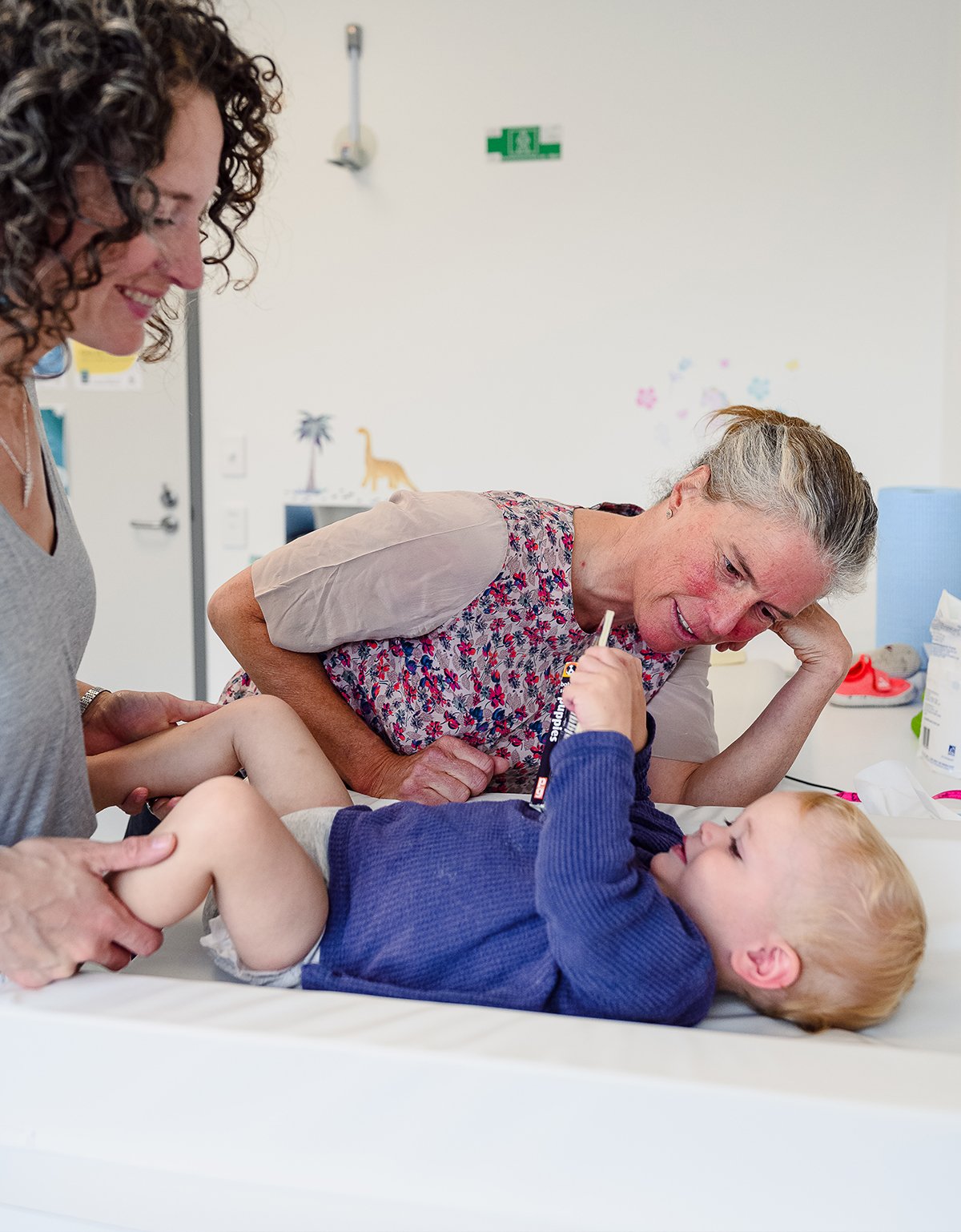
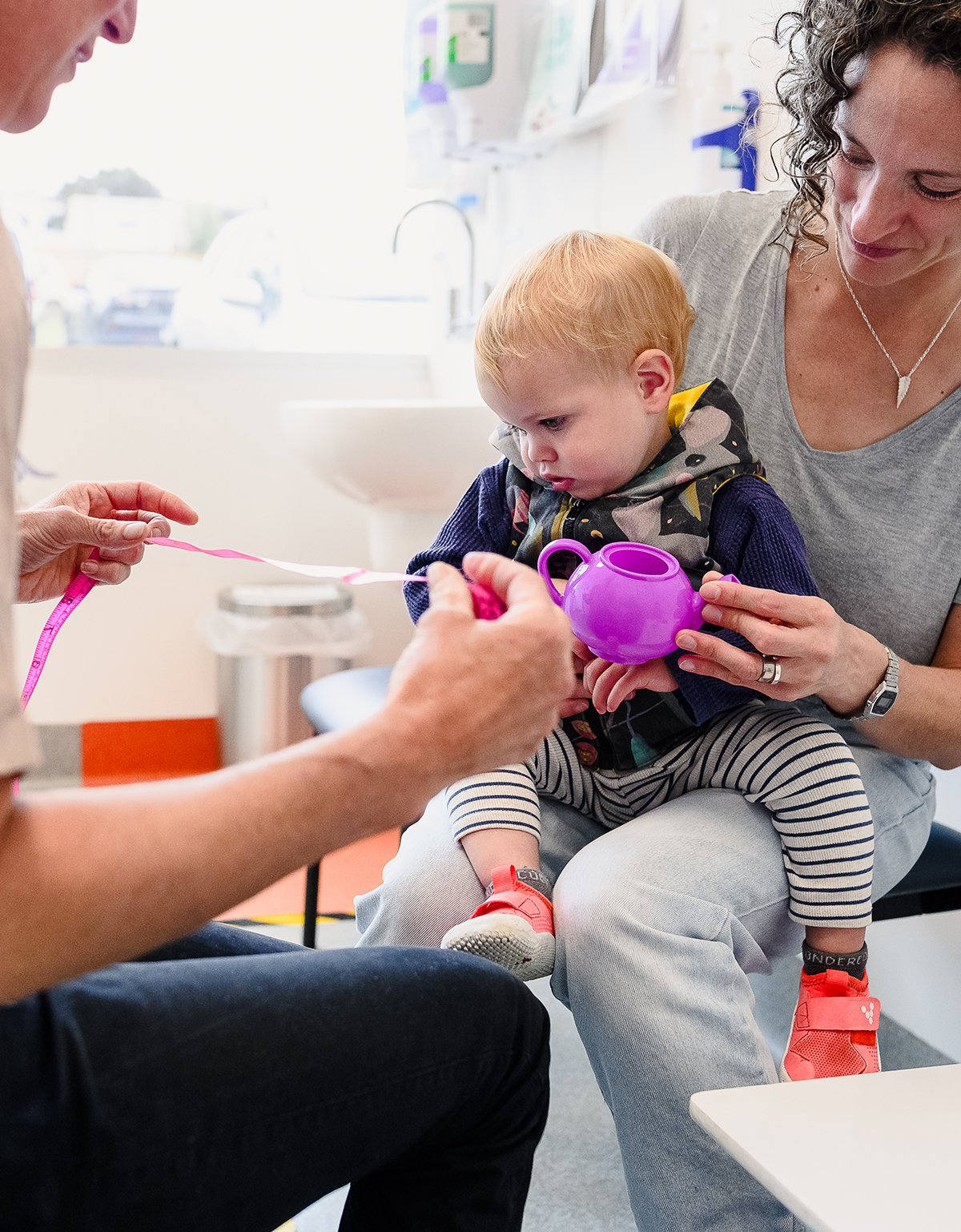
You don’t have to solve every problem or even stop them crying. They just need to feel safe and secure while their emotions are out of control. For me, that is one of the most important things to tell parents.
Hearing their baby cry can be one of the toughest things for families. For parents, it can bring up feelings of tension, uncertainty, and frustration, at the same time they desperately want to help their baby and do the right thing. “There are many strategies you can use if you’re feeling overwhelmed,” Sally explains. “If you can, take a moment to organise what you’re thinking and feeling, so you can be present. Even if the kids are driving you nuts, they need you to be there. You don’t have to solve every problem or even stop them crying. They just need to feel safe and secure while their emotions are out of control. For me, that is one of the most important things to tell parents.”
Sally lives with her husband and two teenaged sons, surrounded by coastal Tasmanian bush. “Wherever you go in Tasmania, nature is there for you. If I feel stressed, I just go for a walk to the beach. Nature is my solace.” She has taught her children to surf, and they have grown up steeped in the same love for the outdoors that meant so much to Sally growing up. They go skiing, mountain biking, bushwalking, and birdwatching. Sally runs classes teaching women to surf. She plays classical guitar and has taught her youngest how to play. “I was always outside with the boys, having fun adventures. It’s those nice little moments that build a stronger connection. No parent is perfect, and it takes a long time to feel confident. But every time you feel more comfortable, more in control, less scared – that’s a victory. You can make such a difference helping just one person. It’s about giving parents skills so they can give other parents skills; you can reach so many people. You can never fit enough things in life, can you? Life is amazing.”
We worked with southern Tasmanian photographer Inside the Frame for this Tasmanian story.